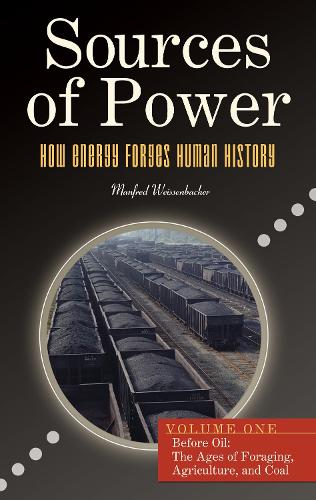
Sources of Power: How Energy Forges Human History [2 volumes]
Publishing Details
Sources of Power: How Energy Forges Human History [2 volumes]
By (Author) Manfred Weissenbacher
Bloomsbury Publishing PLC
Praeger Publishers Inc
30th September 2009
United States
Classifications
Adult Education
Non Fiction
History of engineering and technology
333.79
Physical Properties
Contains 2 hardbacks
1701g
Description
A landmark book rolls out a bold, new, energy-based theory of human history based on a simple, yet powerful law: whoever controls the world's effective energy supplies during a given energy age will inevitably dominate the economic, political, and cultural history of that age. The innovative theory articulated in Sources of Power: How Energy Forges Human History parses history into four ages: the foraging, agriculture, coal, and oil ages, each defined by the dominant source of power. Manfred Weissenbacher tests this sweeping theory against the panorama of world history, combining formidable powers of synthesis with a specialist's deep understanding of energy systems and technologies. After proving the operation of his law through history and into the present, Weissenbacher applies it to global geopolitical trends. He assesses the prospects of the various candidate technologies to succeed oil and charts future scenarios based on the distribution of energy reserves. Finally, he forecasts the fates of the American and Chinese empires in the twilight of the oil age: the United States as a mature superpower forced to deploy military might to occupy oilfields in the Middle East; China as an emerging superpower forced to deploy economic might to muscle in on the development of Third World oilfields.
Reviews
This is a long single-authored work admirable for its clarity, depth, and informed synthesisas well as its importance to scholars, policymakers, and students in the many intertwining fields concerned with energy and politics. * SciTech Book News *
An excellent book for interdisciplinary discussion courses. Highly recommended. General readers and lower- and upper-division undergraduates. * Choice *
Author Bio
Manfred Weissenbacher is an independent energy consultant and teaches at the Department of Politics, Philosophy and Management at Copenhagen Business School.
